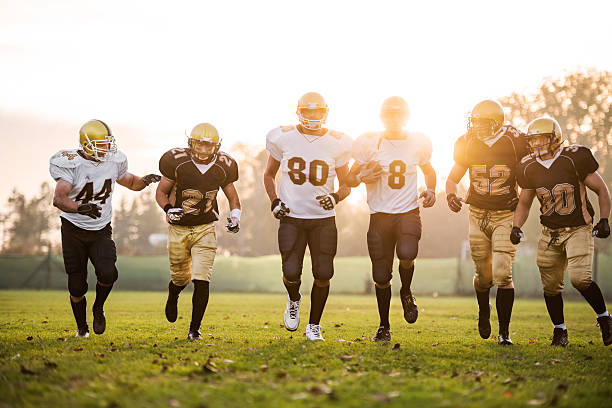Understanding the Duration of High School Football Games
How long is a high school football game? We’ve all been there—sitting in the bleachers on a crisp Friday night, cheering on the local high school team. As the clock ticks and the game unfolds, you might find yourself wondering how long a high school football game typically lasts. Whether you’re a dedicated fan, a curious newcomer, or a parent planning your evening, knowing the expected game length is helpful. Let’s dive into the details to understand the duration of a high school football game and what affects its timing
The Short Answer: 48 Minutes of Play Time
At its core, a high school football game consists of four 12-minute quarters, totaling 48 minutes of actual playing time. But hold on to your helmets, folks – there’s more to the story than just those 48 minutes. The real-world duration of a high school football game typically stretches well beyond an hour, often lasting around 2 to 2.5 hours from kickoff to the final whistle.
Breaking Down the Clock: More Than Meets the Eye
The Deceptive Nature of Game Time
If you’re scratching your head wondering how 48 minutes of play can balloon into 2+ hours, you’re not alone. The game clock in football is a tricky beast, more elusive than a running back dodging tackles. Let’s break it down:
- Clock Stoppages: The game clock isn’t always running. It stops for various reasons, including:
- Incomplete passes
- Players running out of bounds
- Penalties
- Timeouts
- Injuries
- Change of possession
- Halftime: This isn’t just a quick water break. Halftime in high school football typically lasts about 15-20 minutes, giving players a chance to rest and regroup.
- Time Between Quarters: There’s usually a short break between each quarter, adding a few extra minutes to the overall game time.
The Rhythm of the Game: A Quarter-by-Quarter Breakdown
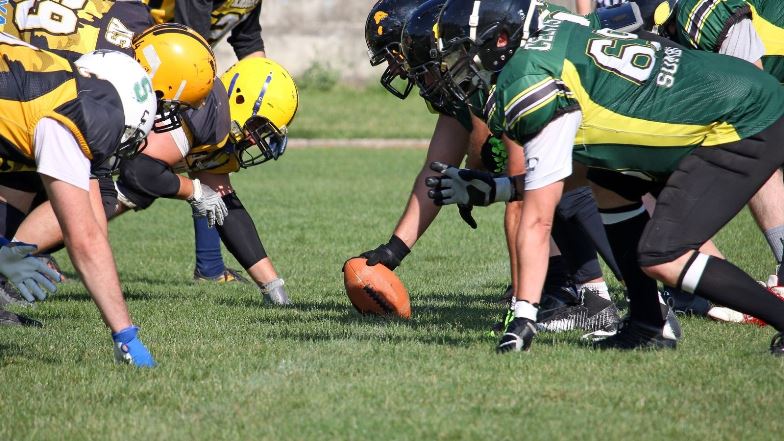
First Quarter – Setting the Tone
As the teams take the field and the crowd roars, the first 12 minutes of play set the tone for the entire game. But don’t be fooled – this quarter often takes longer than you’d expect. With teams feeling each other out and making early adjustments, clock stoppages are frequent.
Second Quarter – The Pre-Halftime Push
As halftime approaches, teams often amp up their strategies. This quarter might see more timeouts as coaches try to manage the clock and squeeze in last-minute plays before the break.
Halftime – More Than Just a Break
Halftime isn’t just about orange slices and pep talks. It’s a crucial part of the game’s structure, allowing for:
- Team discussions and strategy adjustments
- Marching band performances
- Crowd entertainment
- Field maintenance
Third Quarter – The Second Half Kickoff
Coming out of halftime, teams often play with renewed energy. This quarter can be fast-paced but may also include more clock stoppages as teams implement their halftime adjustments.
Fourth Quarter – The Final Countdown
The last 12 minutes of play can be the most exciting – and the longest. Close games may see increased use of timeouts, intentional clock stoppages, and strategic plays that extend the duration.
Factors Influencing Game Length
The Mercy Rule: When Games End Early
In some states, high school football implements a “mercy rule” to prevent lopsided scores. If one team is leading by a significant margin (usually 35 points or more) in the second half, the clock may run continuously, shortening the overall game time.
Weather Delays: When Mother Nature Calls the Shots
Lightning strikes, heavy rain, or other severe weather conditions can pause or even postpone games. These delays can significantly extend the overall duration of the event.
Overtime: When 48 Minutes Isn’t Enough
In case of a tie at the end of regulation play, high school football games may go into overtime. The format can vary by state, but it generally involves each team getting a chance to score from a specific yard line. Overtime can add anywhere from 10 to 30 minutes to the game length.
The Spectator’s Experience: More Than Just Play Time
Pre-Game Festivities: Arriving Early
For many, the high school football experience starts well before kickoff. Tailgating, pre-game warm-ups, and school spirit activities can make the event a full evening affair.
Post-Game Traditions: The Final Whistle Isn’t the End
After the game clock hits zero, there’s often more to come. Team handshakes, award presentations, and post-game interviews can extend the overall experience.
Comparing High School Football to Other Levels
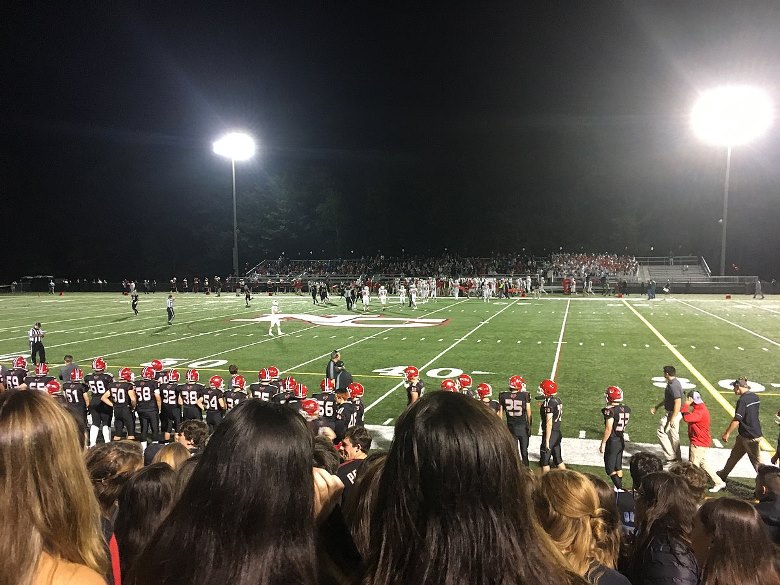
High School vs. College: A Matter of Minutes
While high school games have 12-minute quarters, college football bumps it up to 15 minutes per quarter. This seemingly small difference can lead to significantly longer games at the collegiate level.
High School vs. NFL: The Big Leagues’ Timeline
NFL games also feature 15-minute quarters but tend to last even longer due to more commercial breaks and a more complex review system.
Planning Your Game Night: Tips for Spectators
Arrival Time: Better Early Than Sorry
We recommend arriving at least 30 minutes before kickoff. This allows time for parking, finding seats, and soaking in the pre-game atmosphere.
Comfort is Key: Preparing for a Long Sit
Remember, you’ll likely be in those bleachers for over two hours. Bring cushions, blankets, or stadium seats for maximum comfort.
Snack Strategy: Fueling Your Fandom
Most high school games have a concession stand, but prices can add up. Consider bringing your own snacks and drinks (if allowed) for a budget-friendly option.
The Impact of Game Length on Players and Coaches
Physical Demands: Endurance Matters
While the actual play time is 48 minutes, players need to be prepared for a much longer physical experience. Warm-ups, cool-downs, and the stop-start nature of the game all contribute to the physical toll.
Mental Game: Staying Focused for Hours
Coaches and players must maintain mental sharpness for the entire duration of the game, including downtime between plays and during breaks.
The Future of High School Football Game Length
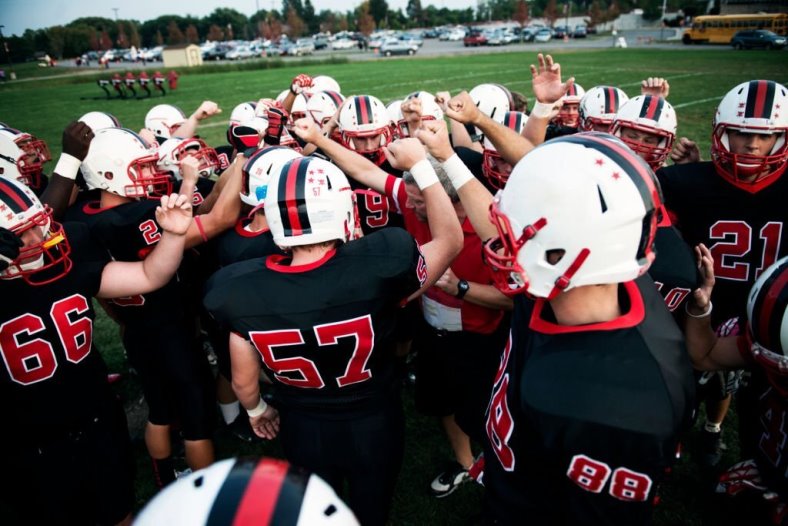
Potential Changes: Balancing Tradition and Modern Needs
As concerns about player safety and game efficiency grow, there’s ongoing discussion about potentially adjusting game formats. Some proposed ideas include:
- Shortening quarters
- Implementing running clocks in certain situations
- Limiting the number of timeouts
The Debate: Preserving the Friday Night Lights Experience
Any changes to game length must balance the need for efficiency with the cherished traditions of high school football. The Friday night lights experience is about more than just the game – it’s a community event that brings people together.
Conclusion: More Than Just Minutes on a Clock
In the end, the length of a high school football game is about more than just the 48 minutes of play time. It’s a complex interplay of rules, traditions, and community spirit. Whether you’re a player, coach, parent, or fan, understanding the rhythm and flow of the game enhances the entire experience. So the next time you head out to cheer on your local team, remember – you’re not just watching a game, you’re participating in a time-honored tradition that stretches far beyond the confines of a clock.
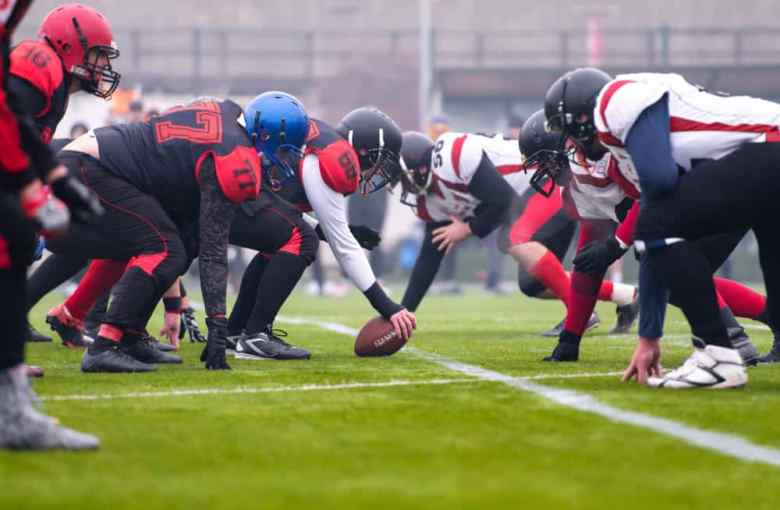
FAQs
Can a high school football game end in a tie?
While it’s possible in some regions, most high school leagues now use overtime rules to determine a winner if the score is tied at the end of regulation time.
How long is halftime in a high school football game?
Halftime typically lasts between 15-20 minutes, though this can vary slightly depending on the school or league.
Do high school football games have TV timeouts like professional games?
Generally, no. High school games don’t have designated TV timeouts, which is one reason they tend to be shorter than college or NFL games.
What happens if a game is interrupted by severe weather?
In case of severe weather, games are usually delayed until it’s safe to resume. If conditions don’t improve, the game might be postponed to another day or called early, with the current score standing as final.
Are there any restrictions on how late a high school football game can run?
While there’s no universal rule, many school districts have policies about how late games can go, especially on school nights. These policies can influence decisions about weather delays or overtime play.


